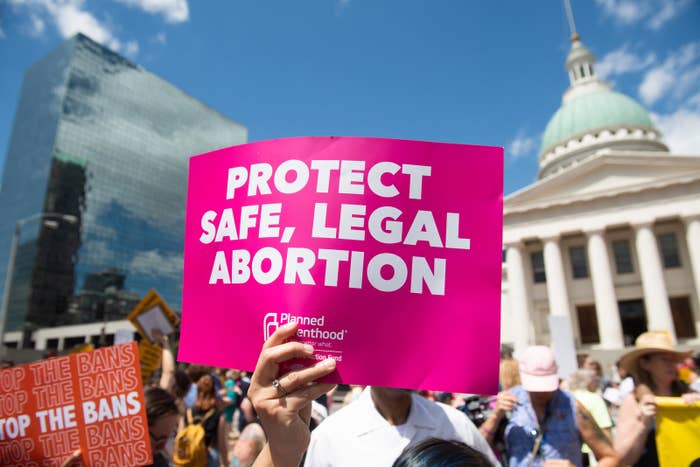
The Trump administration can deny critical federal funding to Planned Parenthood and other family planning organizations that also provide abortions or referrals for them, a federal court ruled Thursday.
Abortion rights advocates fear that could mean thousands of Americans with low incomes will lose access to reproductive health care, and already, Planned Parenthood has said it plans to fight the ruling. Abortion rights groups can also still challenge the ruling in other circuit courts.
A three-judge panel on the 9th Circuit Court of Appeals issued its decision Thursday, agreeing that the federal government has the right to block health care providers from federal grant money if they offer any information about abortions or offer family planning services in the same facilities where doctors perform the procedures.
Federal funding of abortions has been illegal for years, but the Trump administration in February introduced a rule to bar funding of services like birth control, gynecological exams, and screenings for sexually transmitted infections at Planned Parenthood and other clinics that provide abortions as it overhauled Title X, the $286 million federal family planning grant program that serves 4 million Americans with low incomes.
Abortion rights advocates fear the new rule will force dozens of clinics across the country to choose between providing abortion services and the federal funding that keeps their other health care operations afloat.
"It's really dire and is going to cause harm to a lot of people," Emily Nestler, an attorney with the Center for Reproductive Rights, told BuzzFeed News. "Clinics will be forced to stop providing abortion services, which they will have to do because they can't survive without that funding, or drop out of the program. And that will make it nearly impossible for thousands of women, especially in lower-income, scarcely populated areas, to get any care at all."
Nearly 60% of women across the US rely on a Title X–supported organization for health services, according to the Center for Reproductive Rights. Parts of the new rule, such as barring doctors from giving abortion referrals, can go into effect immediately. Other conditions, such as physically removing abortion services from facilities, must be completed by March 4, 2020.
The retooled rule is especially aimed at Planned Parenthood, which serves over 40% of patients who rely on the federal grant money for care. In a statement, Planned Parenthood called the ruling "dangerous, unethical, and illegal" and said it will immediately seek emergency relief from the Court of Appeals.
"Planned Parenthood will not let the government censor our doctors and nurses from informing patients where and how they can access health care," Dr. Leana Wen, president of Planned Parenthood Federation of America, said in a statement. "We will continue to fight the Trump administration in the courts and alongside champions in Congress to protect everyone’s fundamental right to health care."
Also known as a "domestic gag rule," the updated regulations prohibit doctors and nurses from suggesting abortion as an option for patients or referring them to other clinics to get the procedure, which advocates say unethically prevents providers from doing their jobs. Instead, they would only be able to offer people prenatal care or information for adoption agencies.
For large swaths of rural America, the ramifications could be severe. In Maine, for example, 85% of the state's abortion clinics would be forced to shutter, according to a lawsuit filed by the Center for Reproductive Rights. Currently, Maine Family Planning, the state's largest reproductive health care group and only organization that received Title X money, has 18 clinics across the state.
The new law would reduce that number to one, leaving close to 24,000 people with only a single facility to turn to for reproductive health care.
"It’s frightening that this administration wants to make access to care nearly impossible for those who already can’t get it, who can’t afford to drive hours,” Nestler said. “But this isn’t over.”
